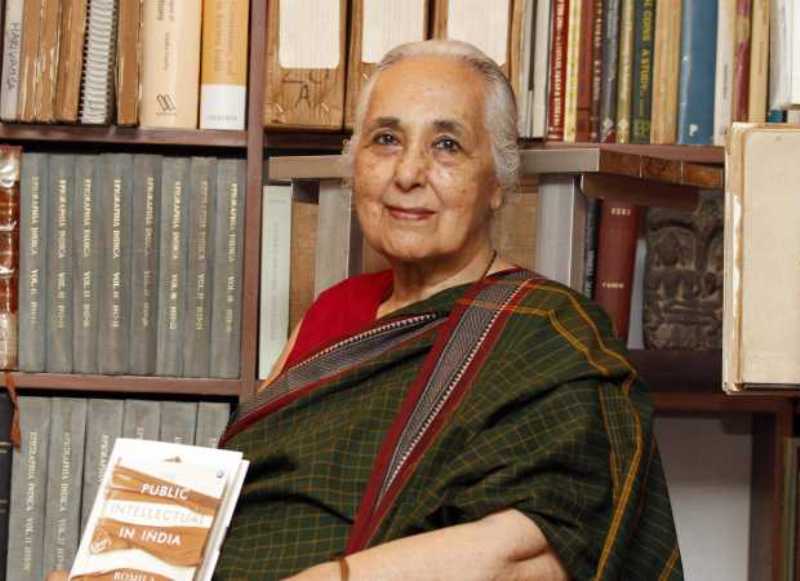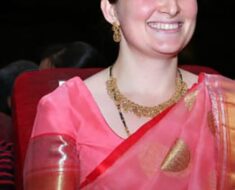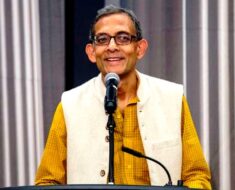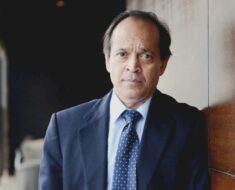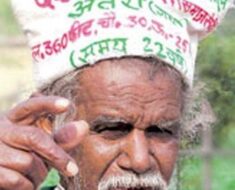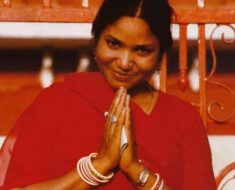Romila Thapar, a towering figure in Indian history, is renowned for her insightful books and profound impact on the field. Her life and career are a testament to intellectual curiosity and unwavering dedication.
Wiki/Biography
Born on Monday, November 30, 1931, in Lucknow, United Provinces (British India), Romila Thapar’s zodiac sign is Sagittarius. Her education spanned various cities, reflecting her father’s postings. She attended St. Mary’s School in Pune and Nowrosjee Wadia College, completing her intermediate schooling there. She earned a BA in Literature from Panjab University, Chandigarh, and furthered her studies at Miranda House, University of Delhi.
A pivotal moment came when she aspired to pursue higher education in London. Her father presented her with a choice: funding for her dowry or for her studies abroad. Romila chose education, a decision that shaped her future.
She obtained a second bachelor’s degree with honors and a doctorate in Indian History under the guidance of A. L. Basham at the School of Oriental and African Studies (SOAS), University of London, in 1958.
Physical Appearance
- Height (approx.): 5’3″
- Eye Colour: Black
- Hair Colour: Grey
Family, Caste & Husband
Romila Thapar’s father, Daya Ram Thapar, was the Director-General of the Indian Armed Forces Medical Services. Her mother’s name was Kaushalya. She has two older siblings: a brother, Romesh Thapar (a journalist), and a sister, Bimla Thapar. Her cousin, Karan Thapar, is also a well-known journalist.
Career
After spending time in England, Thapar returned to India. She began her academic career as a reader in Ancient Indian History at Kurukshetra University in 1961, moving to Delhi University in 1963, holding the same position. After her time at Delhi University (until 1970), she joined Jawaharlal Nehru University (JNU), New Delhi, serving as a professor of Ancient Indian History until 1991. She holds the prestigious title of Professor Emerita at JNU.
Major Works
Romila Thapar’s significant contributions to the field of history are evident in her numerous publications. Some of her major works include:
- Aśoka and the Decline of the Mauryas
- Ancient Indian Social History: Some Interpretations
- Recent Perspectives of Early Indian History
- A History of India: Volume One
- Early India: From the Origins to AD 1300
Controversies
Throughout her career, Romila Thapar has faced controversies. In 2019, she, along with other emeritus professors, was asked to submit their CVs to JNU for review. This decision sparked significant criticism. She notably refused to submit her CV, instead providing a letter clarifying her position.
Further, in 2003, her appointment to the Library of Congress’s Kluge Chair faced opposition due to criticism of her views being labeled “Marxist and anti-Hindu.”
She also declined the Padma Bhushan award twice (1992 and 2005), citing her preference to remain independent from government awards.
Awards & Honours
| Year | Award/Honor |
|---|---|
| 2019 | Member of the American Philosophical Society |
| 2009 | Keynote Address at the 14th World Sanskrit Conference, Kyoto |
| 2009 | Foreign Honorary Member of the American Academy of Arts and Sciences |
| 2008 | Co-winner with Peter Brown of the Kluge Prize for the Study of Humanity |
| 1983 | General President of the Indian History Congress |
In addition to these, she received numerous honorary doctorates and fellowships from prestigious universities worldwide.
Address
23 B Road, Maharani Bagh, New Delhi 110065
Favourite Things
- Subject: Botany, Ancient History
- Historian: Eric Hobsbawm, A. L. Basham
- Leader: Mahatma Gandhi
- Sports: Horse Riding, Swimming
Facts
Romila Thapar is an avid reader and writer, specializing in Ancient Indian history. Her paternal grandfather was a school teacher and vernacular press reviewer for the British Administration, while her maternal grandfather was a legal practitioner who ensured all five of his daughters graduated. Her birth in Lucknow was somewhat serendipitous, a stop during her mother’s journey from Rangoon to Lahore. She spent her childhood in several locations due to her father’s army postings, and during her school years, she even met Mahatma Gandhi.
Her father’s influence sparked her interest in history, further cultivated by her experiences in London. Her academic journey includes contributions to NCERT history textbooks. Despite facing criticism, she remains a respected and influential figure in her field, known for her intellectual independence.

